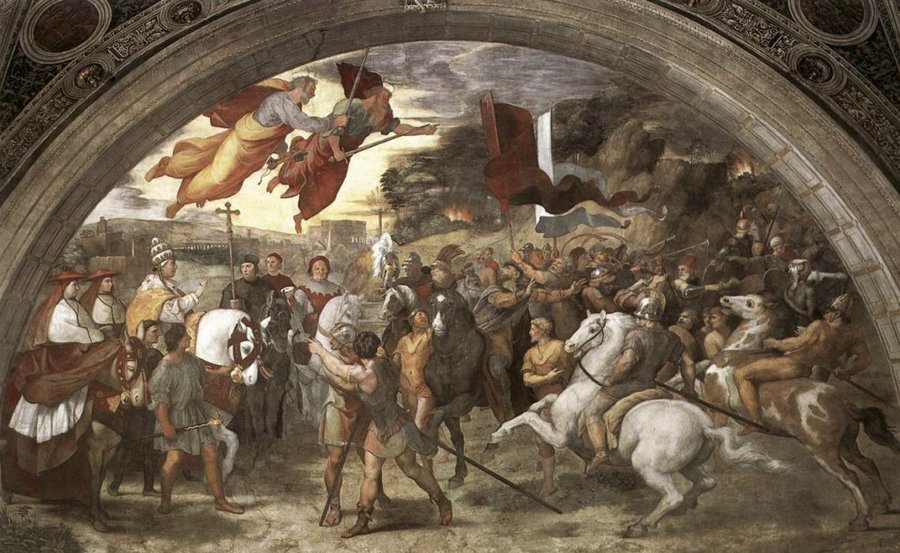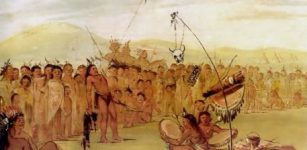On This Day In History: Attila The Hun Captures The City of Metz – On Apr 7, 451
AncientPages.com - On April 7, 451, Attila the Hun, who reigned 434-453 CE, captured and plundered the city of Metz - Roman's stronghold.
Without any opposition, he massacred the citizens and continued his new attacks on other cities in Gaul, today known as France.
Raphael (1483-1520) painted "The Meeting between Leo the Great and Attila." According to legend, the miraculous apparition of Saints Peter and Paul armed with swords during the meeting between Pope Leo the Great and Attila in A.D. 452 persuaded the king of the Huns not to invade Italy. Credit: Public domain.
Metz was first heard of about 1,200 BC. Later it became the central city of Roman Gaul and a well-fortified town ideally located at the junction of several important military roads.
During his reign, Attila ("Little Father") was the leader of the nomadic people known as the Huns and ruler of the Hunnic Empire.
He was one of the most feared enemies of the Western and Eastern Roman Empires. Attila's incursions into the regions of Germania drove the populations across the borders of the Western Roman Empire and contributed to its decline in the late 5th century CE.
No general was especially eager to engage the Hun forces under Attila.
Attila's army used to appear suddenly as if from nowhere, leaving only destruction behind them.
It was impossible to establish an effective early-warning system.
He was finally met in a battle by the combined forces of the Romans under Flavius Aetius. They understood Hun's strategy and tactics, and the Visigoths under Theodoric I (reigned 418-451 CE) on the Cataluanian Plains.
This engagement is known as the Battle of Cataluanian Fields or the Battle of Chalons.
It has been and has been described as one of the bloodiest military conflicts in history, and for the first time, Attila's forces were halted in an invasion of Europe,
Although Attila had been stopped in his invasion, he had hardly been defeated.
AncientPages.com





















